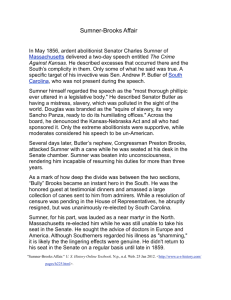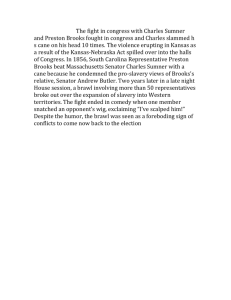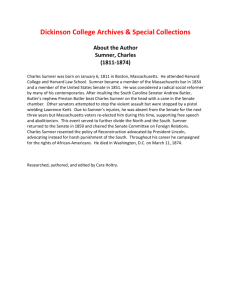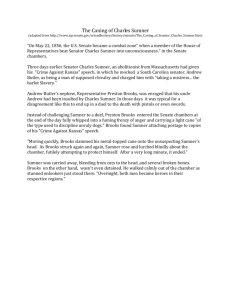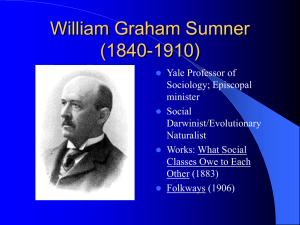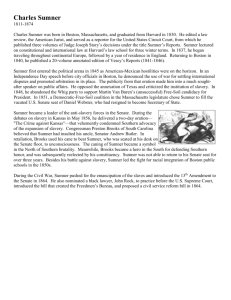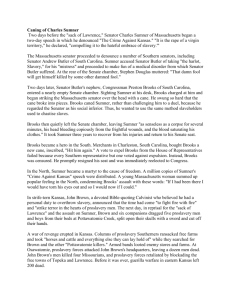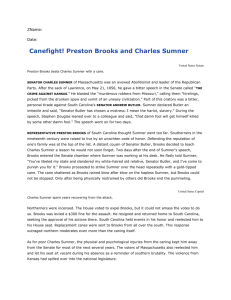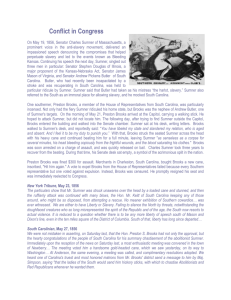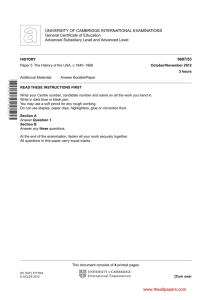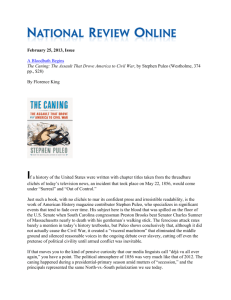First Battlefield of the Civil War: Congress
advertisement
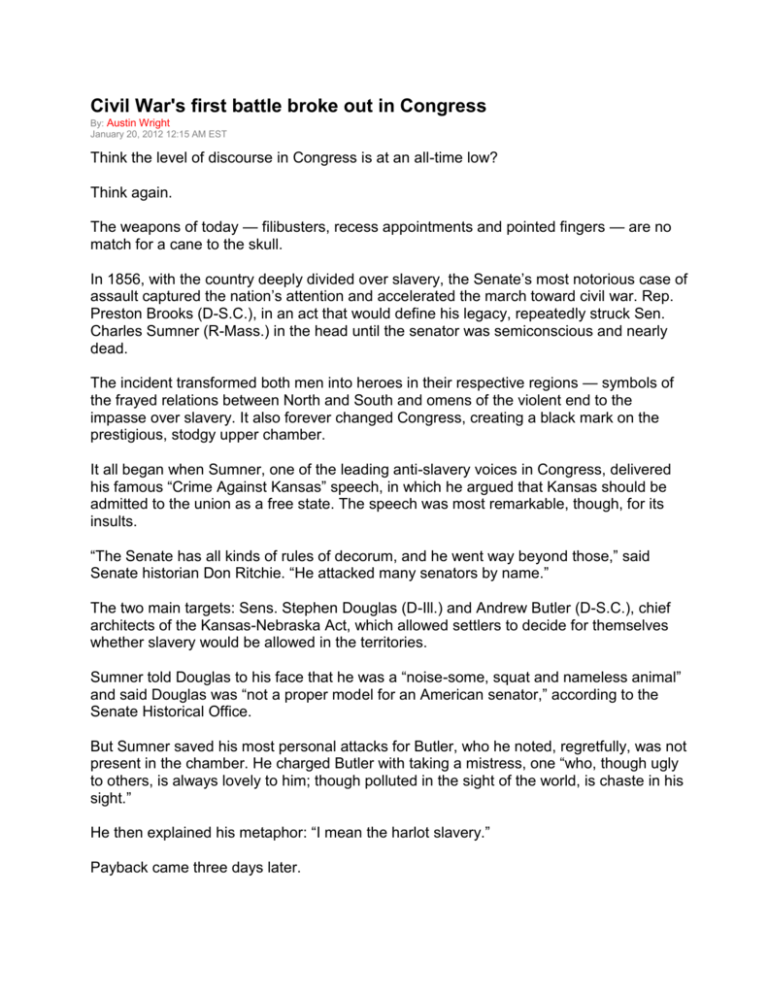
Civil War's first battle broke out in Congress By: Austin Wright January 20, 2012 12:15 AM EST Think the level of discourse in Congress is at an all-time low? Think again. The weapons of today — filibusters, recess appointments and pointed fingers — are no match for a cane to the skull. In 1856, with the country deeply divided over slavery, the Senate’s most notorious case of assault captured the nation’s attention and accelerated the march toward civil war. Rep. Preston Brooks (D-S.C.), in an act that would define his legacy, repeatedly struck Sen. Charles Sumner (R-Mass.) in the head until the senator was semiconscious and nearly dead. The incident transformed both men into heroes in their respective regions — symbols of the frayed relations between North and South and omens of the violent end to the impasse over slavery. It also forever changed Congress, creating a black mark on the prestigious, stodgy upper chamber. It all began when Sumner, one of the leading anti-slavery voices in Congress, delivered his famous “Crime Against Kansas” speech, in which he argued that Kansas should be admitted to the union as a free state. The speech was most remarkable, though, for its insults. “The Senate has all kinds of rules of decorum, and he went way beyond those,” said Senate historian Don Ritchie. “He attacked many senators by name.” The two main targets: Sens. Stephen Douglas (D-Ill.) and Andrew Butler (D-S.C.), chief architects of the Kansas-Nebraska Act, which allowed settlers to decide for themselves whether slavery would be allowed in the territories. Sumner told Douglas to his face that he was a “noise-some, squat and nameless animal” and said Douglas was “not a proper model for an American senator,” according to the Senate Historical Office. But Sumner saved his most personal attacks for Butler, who he noted, regretfully, was not present in the chamber. He charged Butler with taking a mistress, one “who, though ugly to others, is always lovely to him; though polluted in the sight of the world, is chaste in his sight.” He then explained his metaphor: “I mean the harlot slavery.” Payback came three days later. Brooks, a relative of Butler and a fellow South Carolinian, entered the Senate chamber bent on defending the honor of his family and his state. He approached Sumner, who was putting his name on copies of his controversial speech. Brooks then slammed his cane into Sumner’s unsuspecting head. “Brooks beat Sumner so severely — about 40 blows — that his cane broke into pieces,” Ritchie said. “It all took place in a minute’s time.” Sumner spent the next three years recovering before he returned to the Senate as an ally of President Abraham Lincoln. During his absence, Ritchie said, Sumner’s “empty desk was a very powerful symbol that the political compromises that they were trying to reach on slavery and the spread of slavery into the territories were doomed and the issue had gotten too emotional and too divisive.” As for Brooks, the congressman resigned but was immediately reelected. “Many in the South cheered him,” Ritchie said. “They sent him canes to replace the one he broke in the chamber.” No matter how bad it gets in today’s gridlocked Congress, the incident acts as a powerful reminder: It could be much worse.
